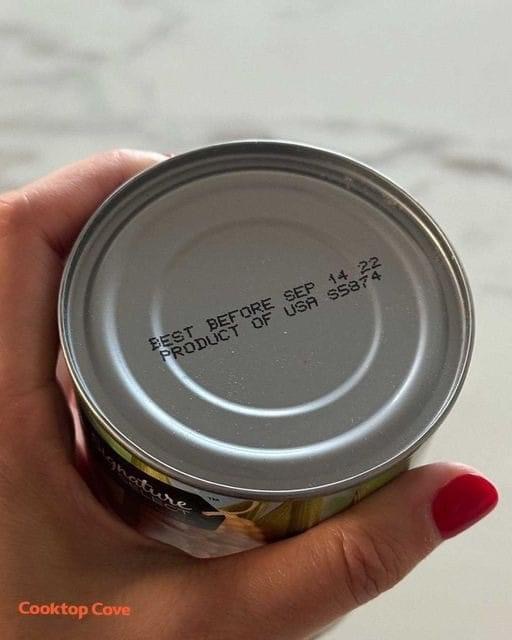
“Expiration confusion often arises among consumers due to ‘Best by’ labels, commonly found on various food products, including canned goods. It’s crucial to recognize that ‘best by’ dates aren’t strict expiration dates; rather, they represent the manufacturer’s estimate of the product’s peak quality.
This article delves into the extended use of canned foods, such as corn, green beans, and tuna, beyond their ‘best by’ dates, providing safety guidelines for consumption.
Understanding ‘Best By’ Dates:
These dates suggest when a product is expected to be at its freshest and most flavorful. For canned foods, this means that even after the ‘best by’ date has passed, the product may still be safe if stored correctly.
Canned Corn:
Canned corn can be consumed safely for an extended period beyond the ‘best by’ date. If the can is undamaged and stored in a cool, dry place, canned corn can remain safe to eat for up to 1-2 years past its ‘best by’ date. However, the quality, texture, and flavor may gradually decline.
Inspect the can for damage before use, such as bulging, rust, or leaks. If compromised, do not use the product.
Canned Green Beans:
Similar to canned corn, properly stored canned green beans can be safe for consumption up to 1-2 years past the ‘best by’ date. Quality may diminish over time, with potential changes in texture and flavor.
Check the can for damage before use. If compromised, err on the side of caution and discard the product.
Canned Tuna:
When stored correctly, canned tuna can be safe to eat up to 3-5 years past the ‘best by’ date. However, the quality may degrade over time. Examine the can for signs of damage or deterioration before use, and be attentive to changes in odor, texture, or appearance. If anything seems off, it’s advisable to discard the product.
Storage Tips:
To maximize the shelf life of canned foods, follow these tips:
– Keep canned goods in a cool, dry place away from direct sunlight and temperature extremes.
– Store cans upright to prevent damage to seals.
– Rotate your canned food stock, placing newer purchases at the back and using older items first.
– Avoid denting or damaging cans, as this can compromise their seal and safety.
– Consider transferring leftover canned food to a sealed container and refrigerating it for short-term storage.”